The Fraternity – international Humanitarian Federation (FIHF), through the Training and Development Sector (T&D) of its affiliate, the Fraternity – International Humanitarian Missions (FIHM), has since 2023 been promoting a cycle of qualifications and training on the Sphere Standards, in oder to prepare the
Light-Communities, Light-Nuclei, and Grace Mercy Order monasteries for dealing with emergency situations and prolonged crises.
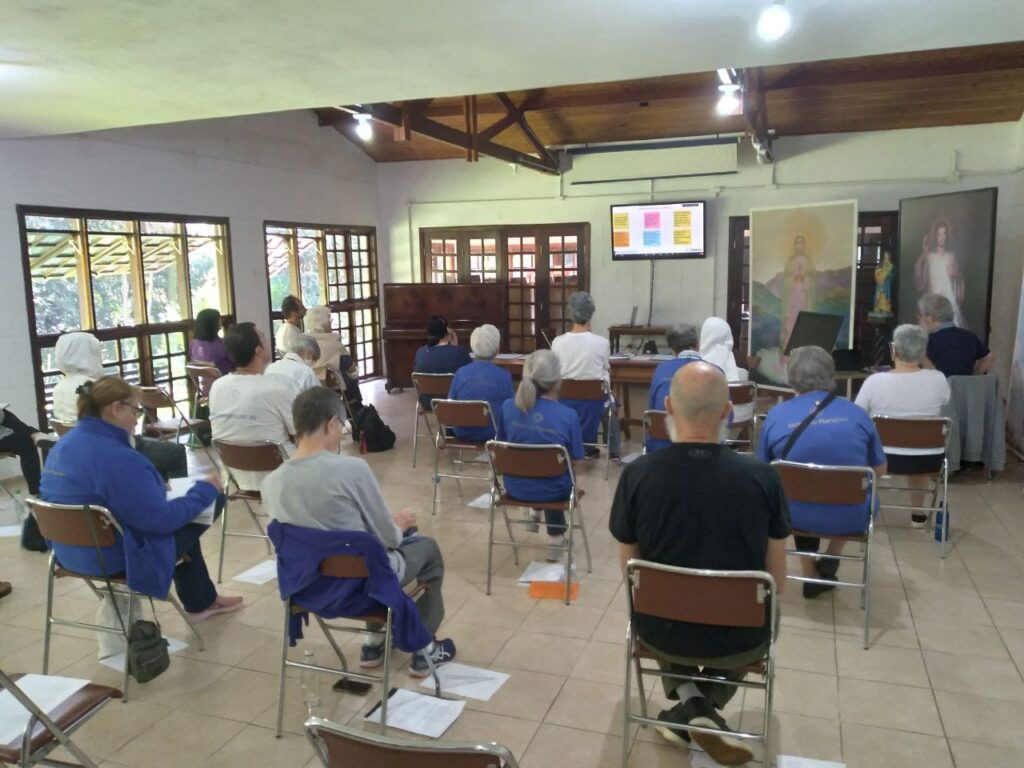
After the theory training, each affiliate is preparing an Emergency Plan according to what it can readily do, and the entire process is being guided and monitored locally by the volunteer humanitarian server, Ricardo Baumgartner.
According to Ricardo, approaching it through the Humanitarian Charter, Principles of Protection, WASH (Water, Sanitation and Hygiene), and Shelter helped in training the participants to develop emergency plans adapted to their realities. Ricardo emphasizes the importance of cooperation, readiness and organization for developing the plan, which considers both meeting human needs and environmental sustainability.
The general manager of the Fraternity – Humanitarian Federation (FIHF) , Friar Luciano, highlights the relevance of the Emergency Plan so that the Light-Communities and Light-Nuclei can be prepared for situations such as a natural disaster, fires, floods, and other unexpected events. “This is important so that these places are able to respond to those emergencies with greater technical and psychological preparation, as well as being a support and reference point for the surrounding cities and regions. Preparing also means improving the infrastructure of these places to include taking in people and animals, if necessary.”
To put the Emergency Plans into practice, some simulations will be carried out that will contribute to training the members of the Light-Communities for situations in which the various resources which we have available on that day such as water, electricity, various foodstuffs, cooking gas, among other things, may be available for three days. But Ricardo explains: “The simulations will follow a previous plan involving the coordinations of the Light-Communities , and the process will be followed by observers, who will evaluate the organization and performance of the group; according to the results achieved, the necessary improvements for each affiliate will be jointly considered.”
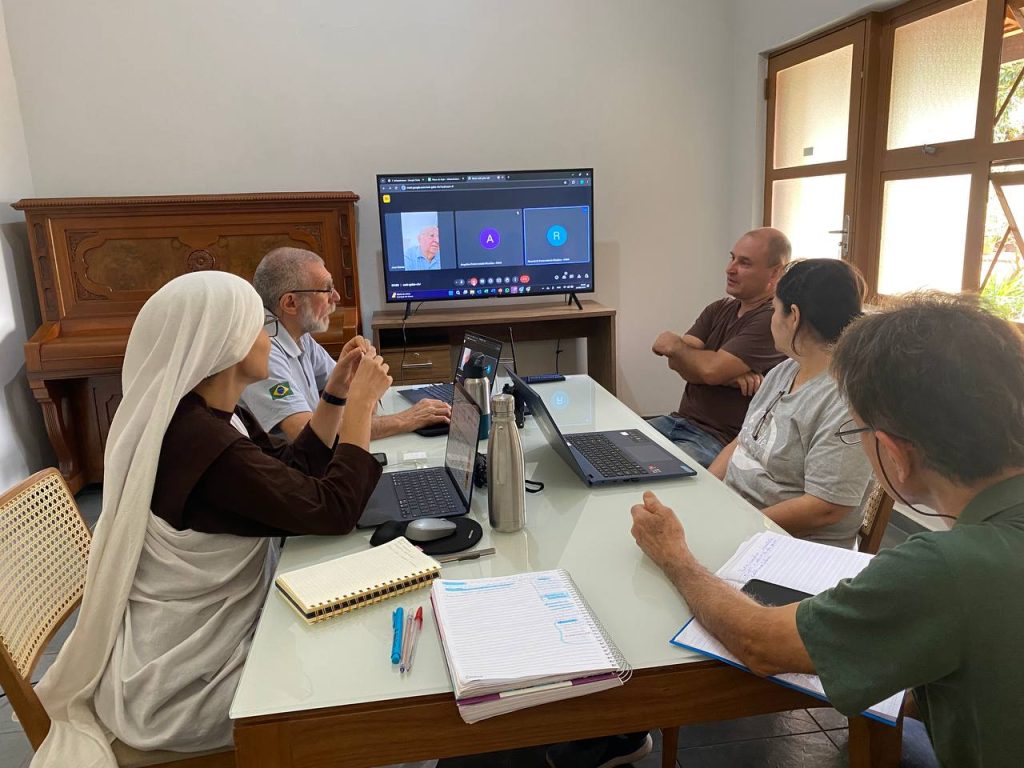
“The simulations activate a preventative approach which includes studying scenarios, identifying risk patterns, predicting solutions for different situations, training the groups so as to prevent damage and anticipate the triggering of consequences in the affected regions, practicing other principles of context analysis in simulations, identifying priorities, creating temporary coordination committees to optimize human and material resources,” highlights Friar Luciano.
Putting the Emergency Plan into Practice
The first simultaneous simulation has already been carried out in September, and the challenge was to prepare only available food, such as preserves, flours, dehydrated products, and items grown in the Light-Communities and Light-Nuclei themselves, but with an even greater degree of difficulty: cook everything without using gas or electricity.
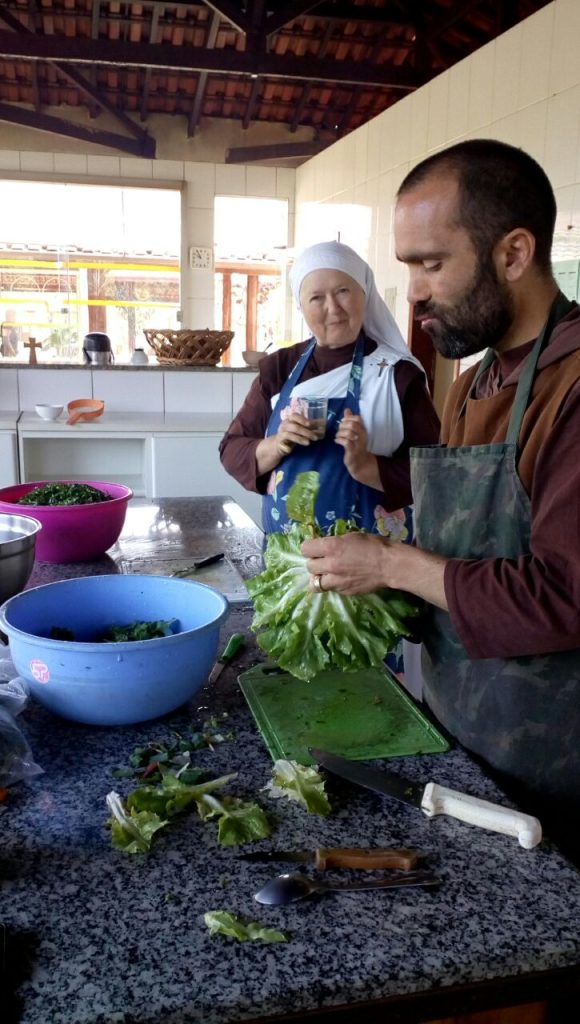
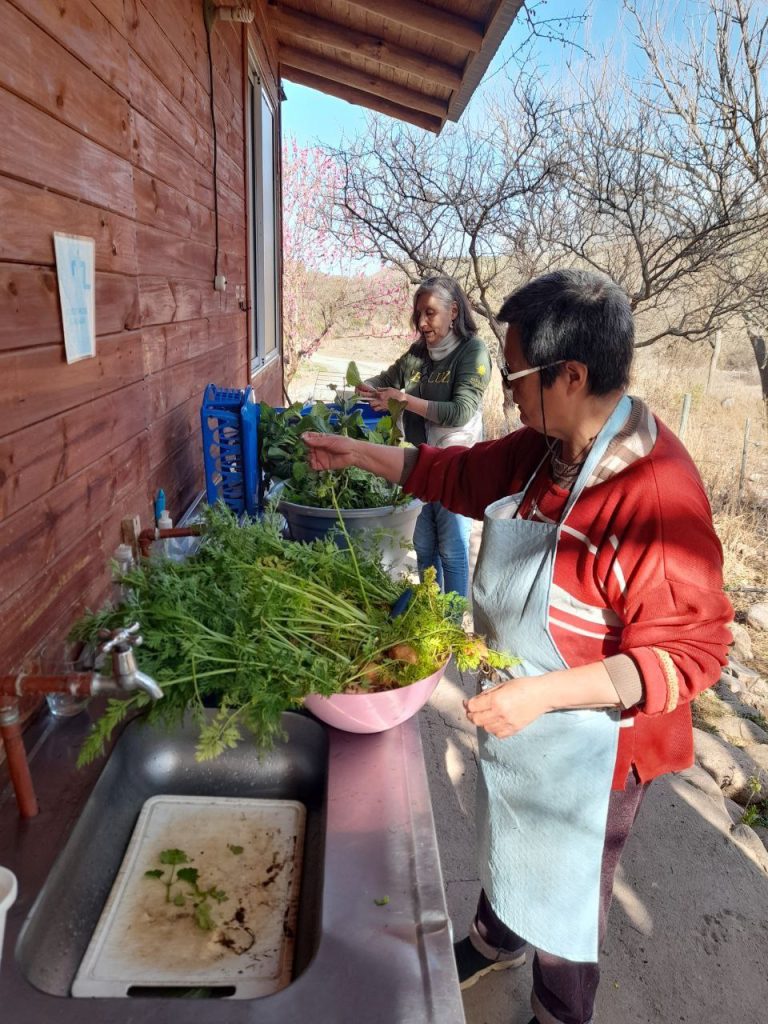
Challenge accepted and put into practice, the representatives of the affiliates describe what the experience was like:
Sacred Heaven Light-Nucleus, Belo Horizonte – MG:
The food simulation brought about significant lessons, such as adapting to the processes throughout the days. The use of a wood-burning stove, which had previously been stopped, was reactivated and incorporated into the routine, being a positive surprise.
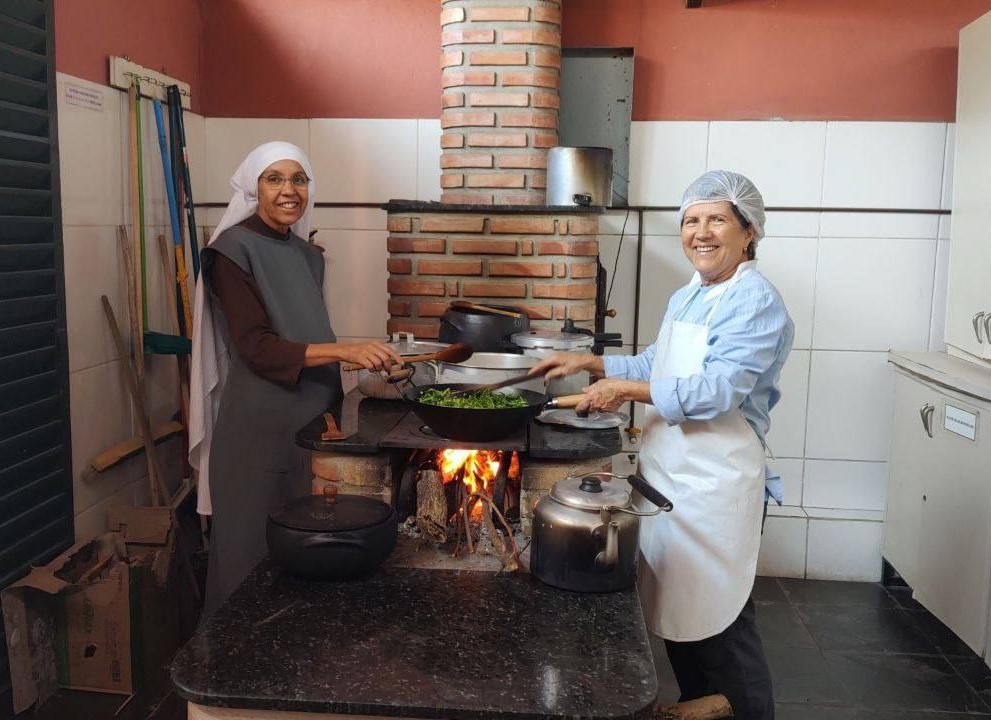
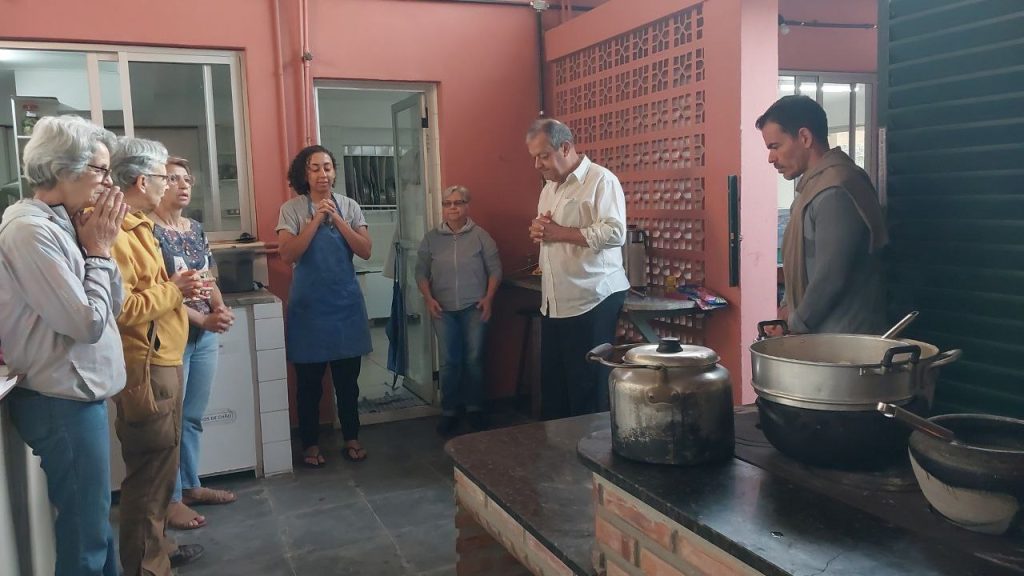
New Earth Light-Community, Teresópolis, RJ:
The experience highlighted the value of cohesion in the group and clarity of responsibilities. The reactivation of the wood-burning stove united the participants, and the decision was made to use it three times a week, strengthening its relevance in daily activities.
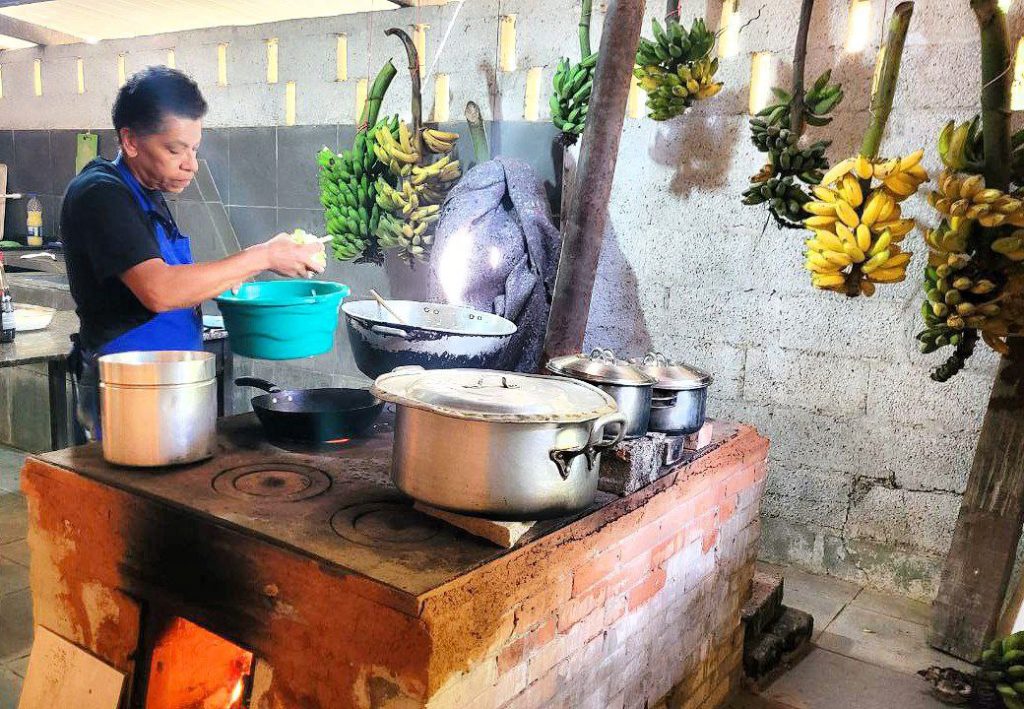
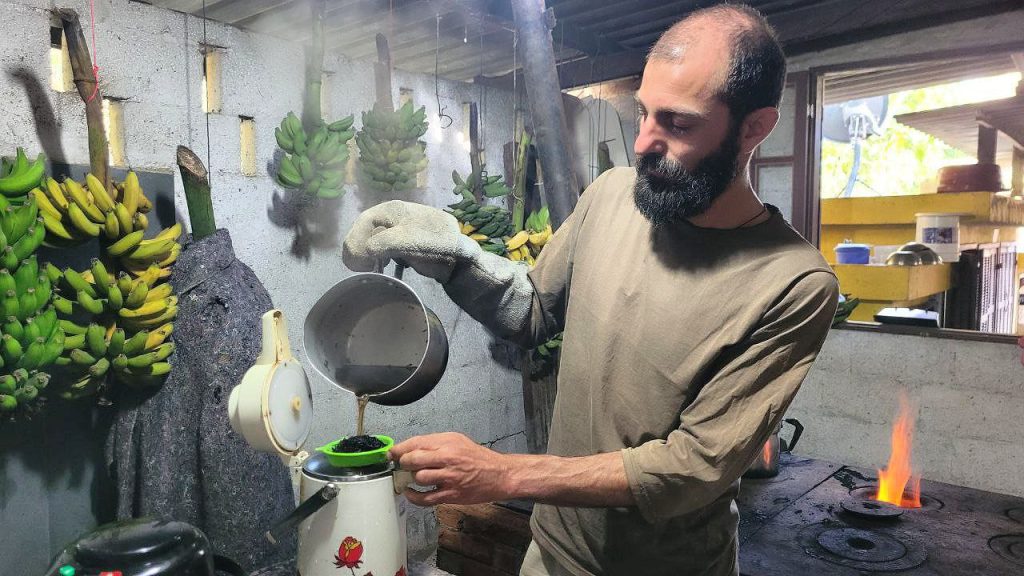
Fraternidad de Aurora Light-Community, Paysandú – Uruguay
Considered a success by the Light-Community team, the simulation required some adjustments in the planning for the efficient use of the wood-burning stove, such as beginning the work earlier, but there was success due to the group effort.
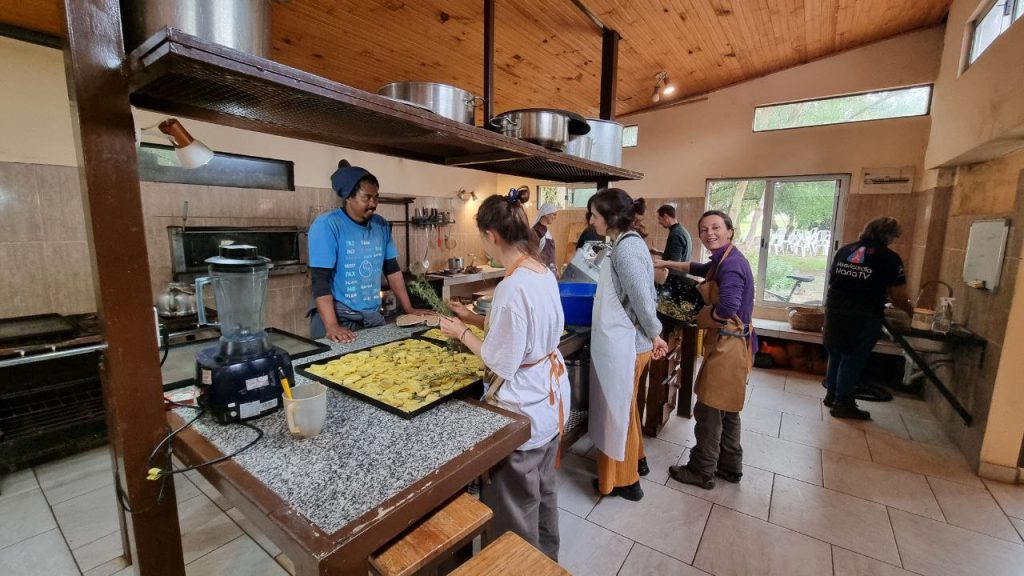
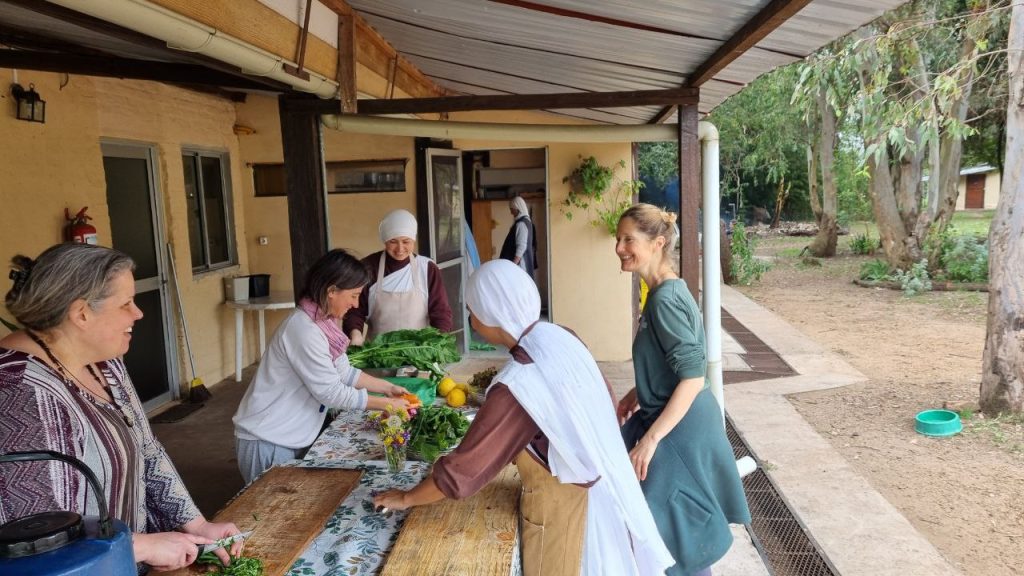
Figueira Light Community, Carmo da Cachoeira – MG:
The simulation brought about good results, mainly because of the responsibility given to the area coordinations, who ensured the dissemination of information and the enthusiastic participation of the Light-Community as a whole. The integration was strengthened, with all areas collaborating in the preparation of food, promoting a great deal of unity. Challenges emerged, especially with feeding the elderly and the children, which were overcome with love and care. The experience highlighted the need for the installation of wood-burning stoves in all areas, and the continuation of adopting healthy eating habits.
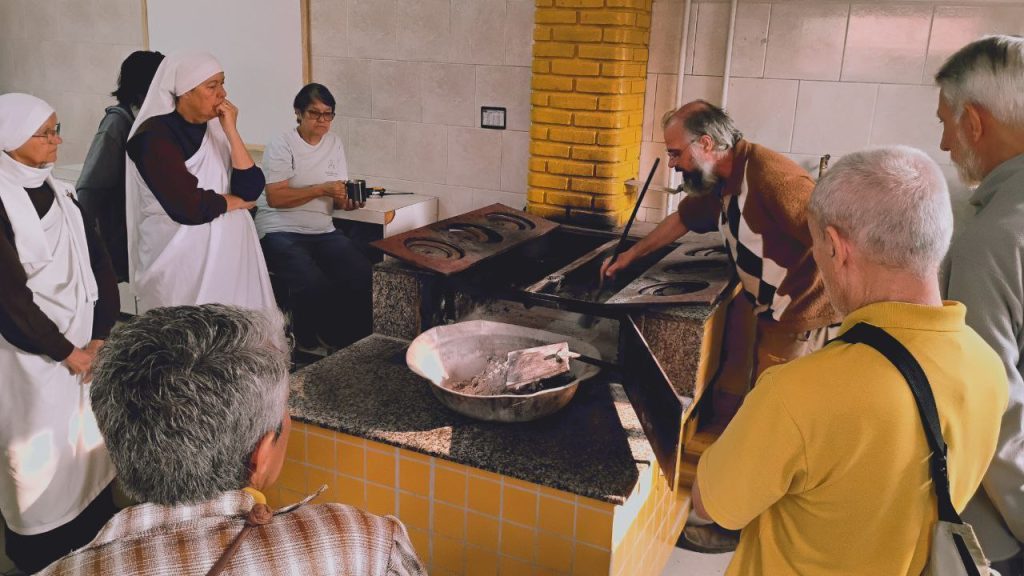
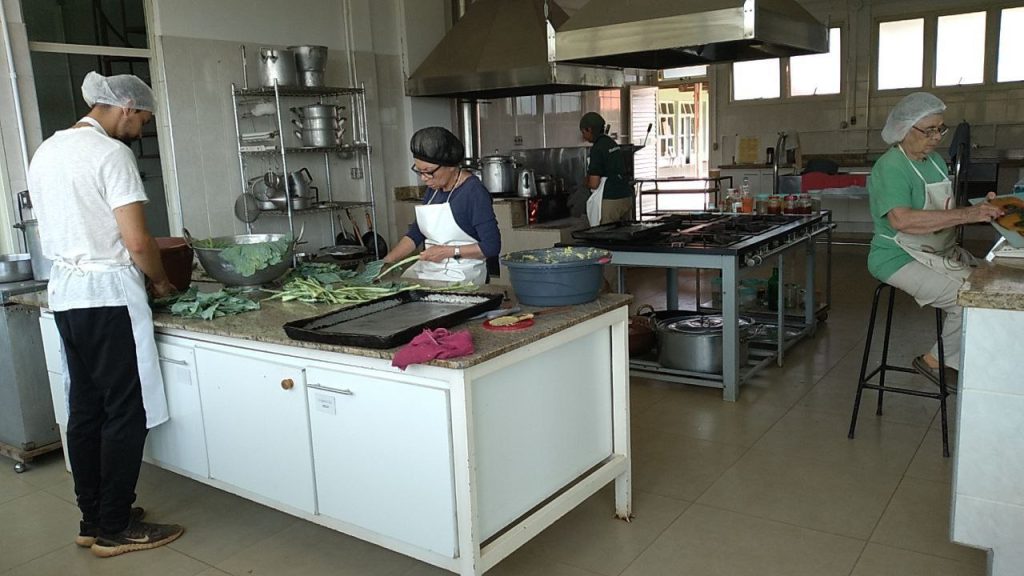
Brotherhood Light-Community, Cordoba – Argentina:
In the Brotherhood Light-Community, climactic conditions, especially the wind, presented an additional challenge in the upkeep of the fire. In spite of the difficulties, there was a positive result in relation to the restricted diet, with participants adhering to the exercise and being surprised by their ability to adapt.
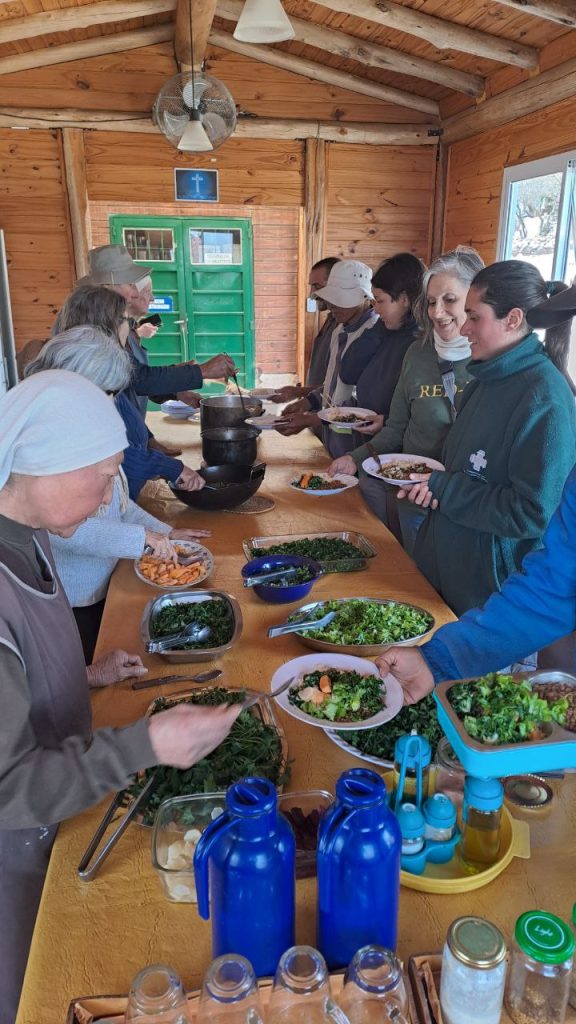
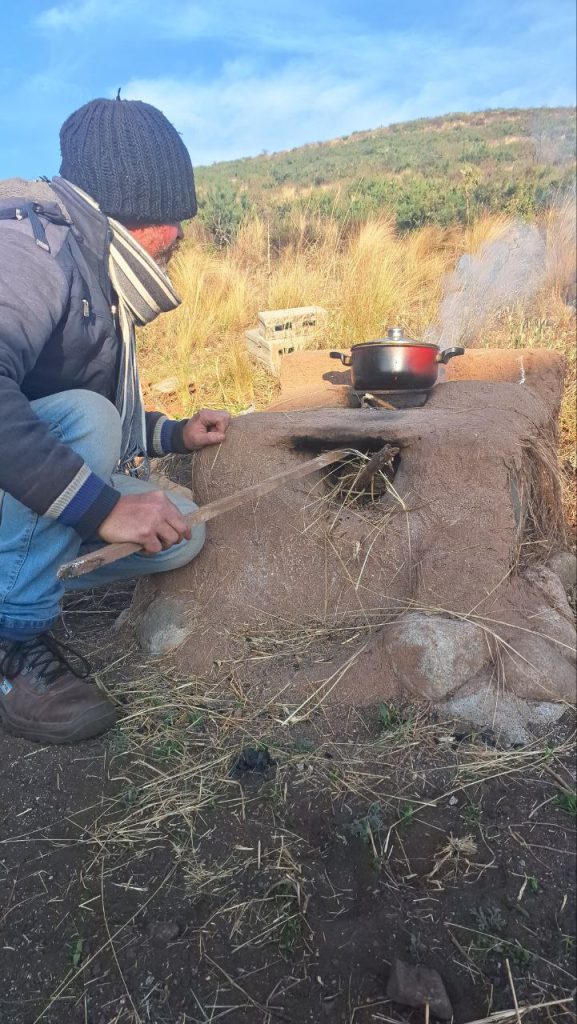
Immaculate Light-Nucleus House of Relief of Suffering (ICAS) – São Carlos, SP:
The experience in the São Carlos Light-Nucleus on the building of an improvised stove generated a collective mobilization that minimized the emotional difficulties, and highlighted the need for everyone to be prepared for emergencies, promoting both practical adjustments and the strengthening of a sense of unity.
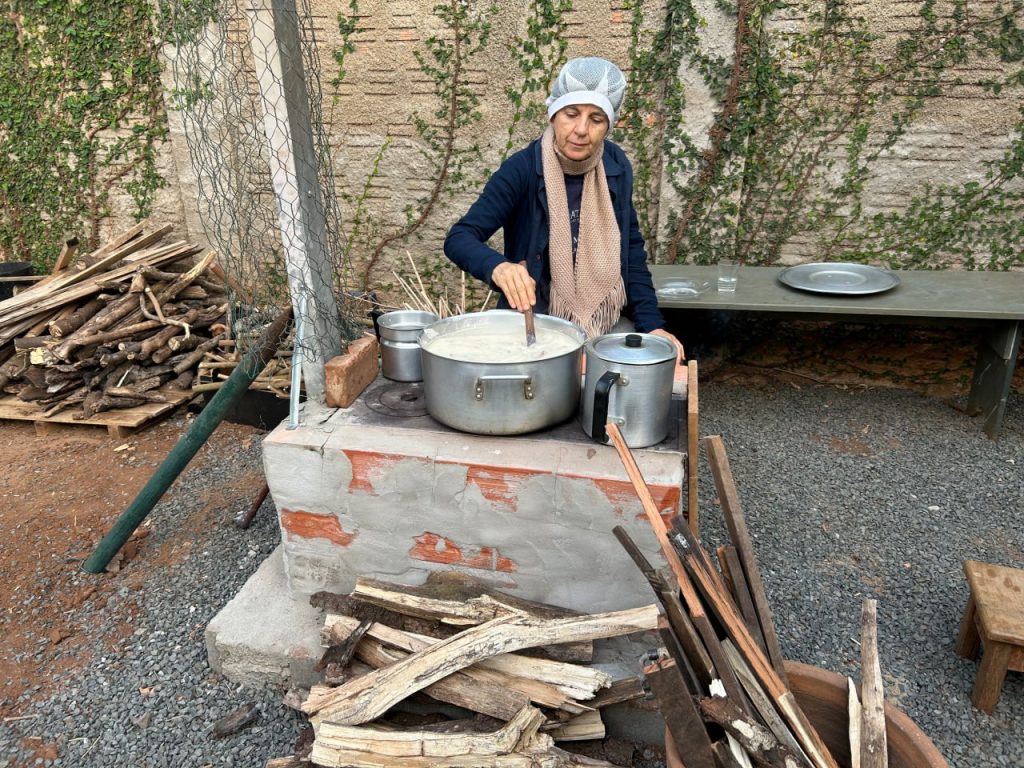
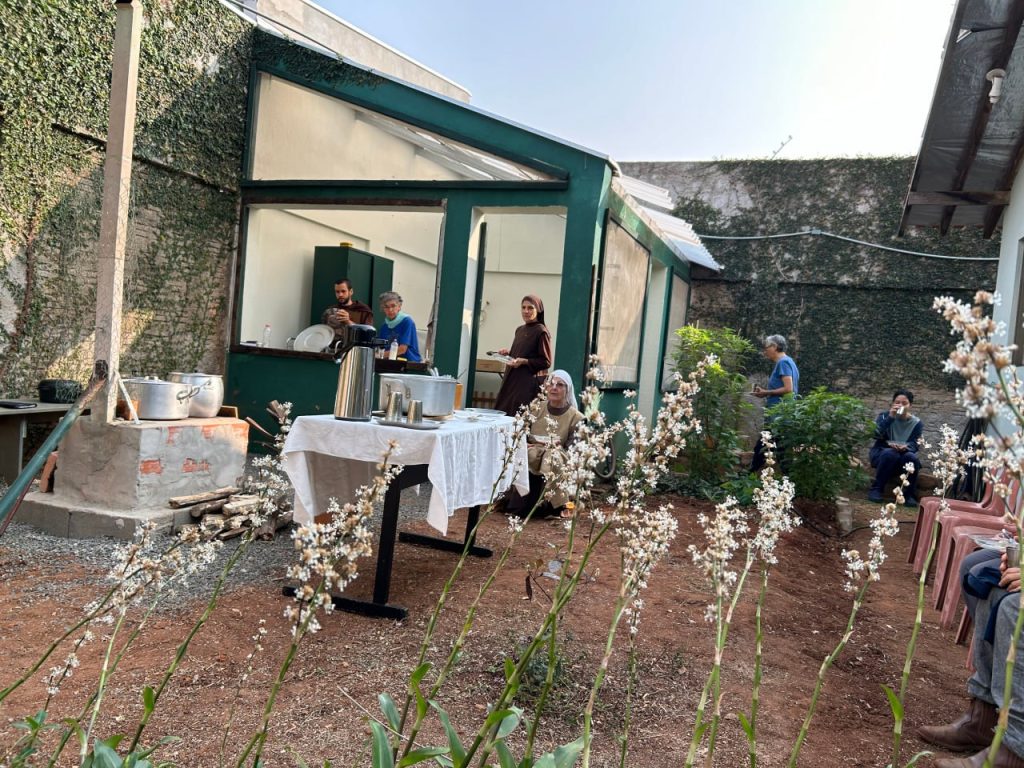
Sacred House of Mary Light-Nucleus, Paulista Mother – São Paulo, SP:
Adapting to the use of a wood-burning stove was one of the main challenges, but it brought about important lessons on vigilance and simplicity. The experience showed that the amount of food was sufficient and even in excess, reinforcing the idea that it is possible to live well with less, as long as the nutritional quality is maintained.
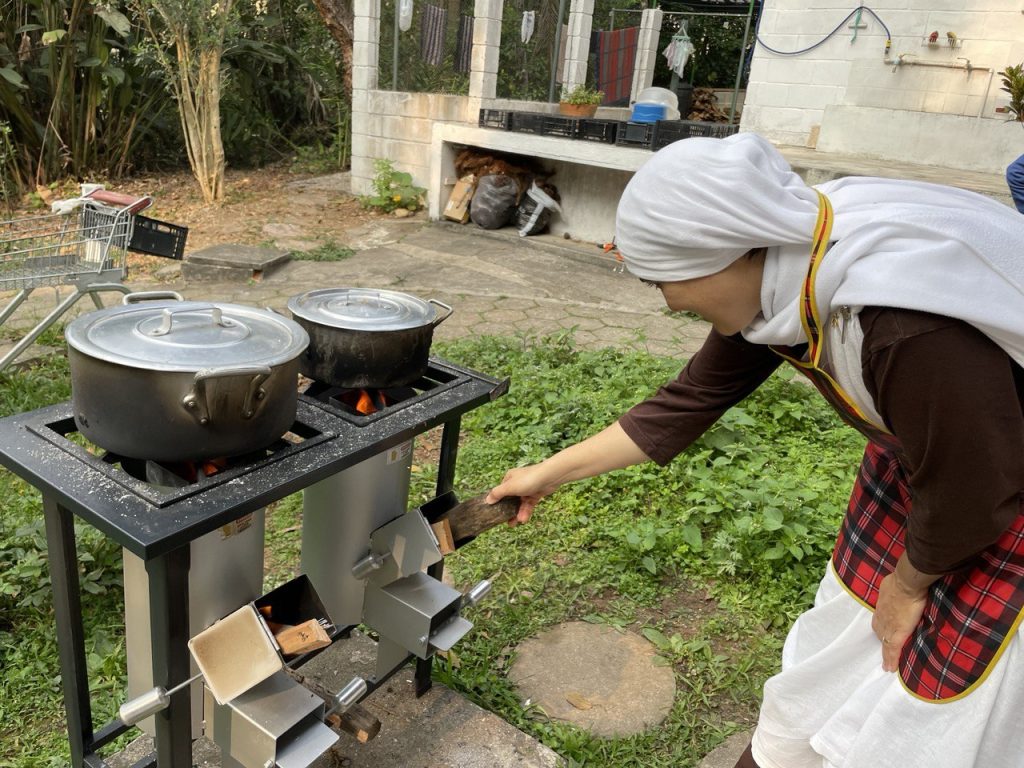
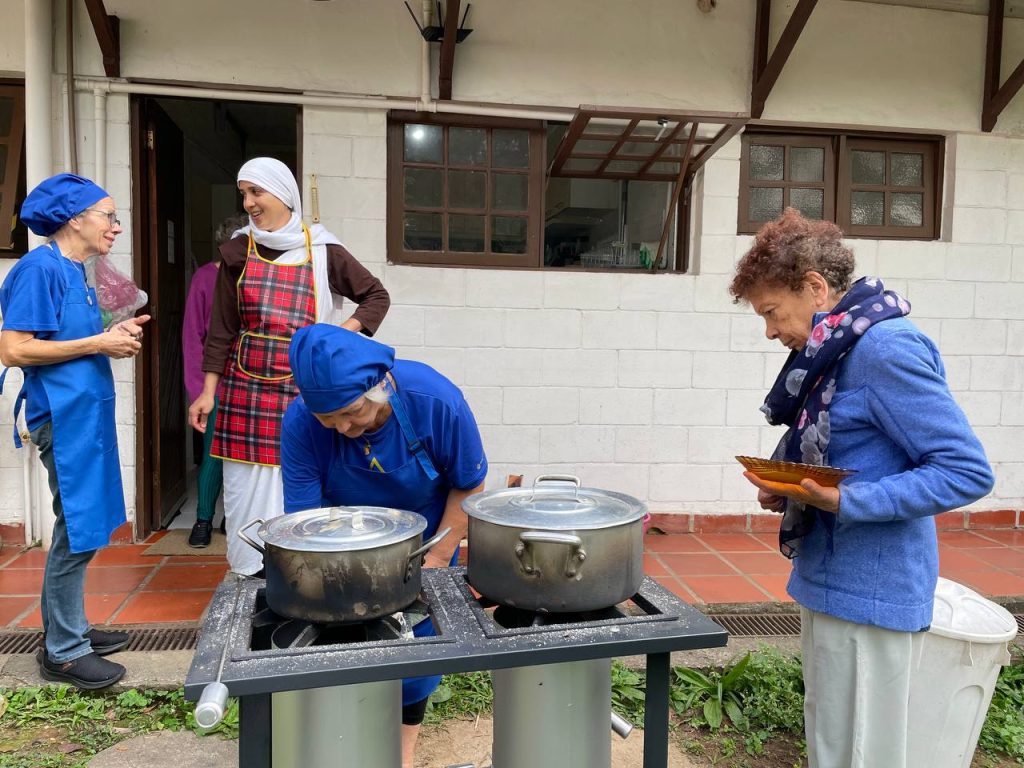
Ricardo evaluates the simulation in a very positive way and says that the experience provided important lessons on planning, adaptation, and the ability to overcome challenges. And he emphasizes “the relevance of vigilance and preparation for emergencies, but above all, the strengthening of unity among participants.”
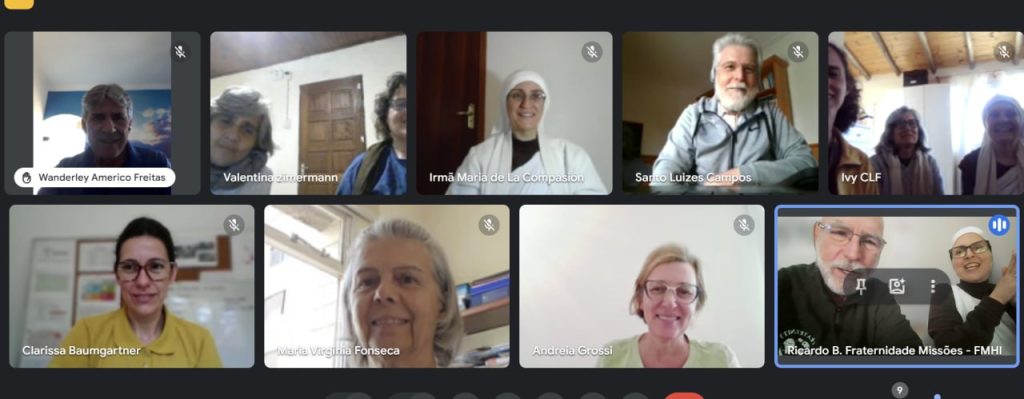
In October, the focus will be on the efficient use of water, taking into account the high temperatures and the scarcity of water that affects the different regions where the affiliates are located. We await the results.





